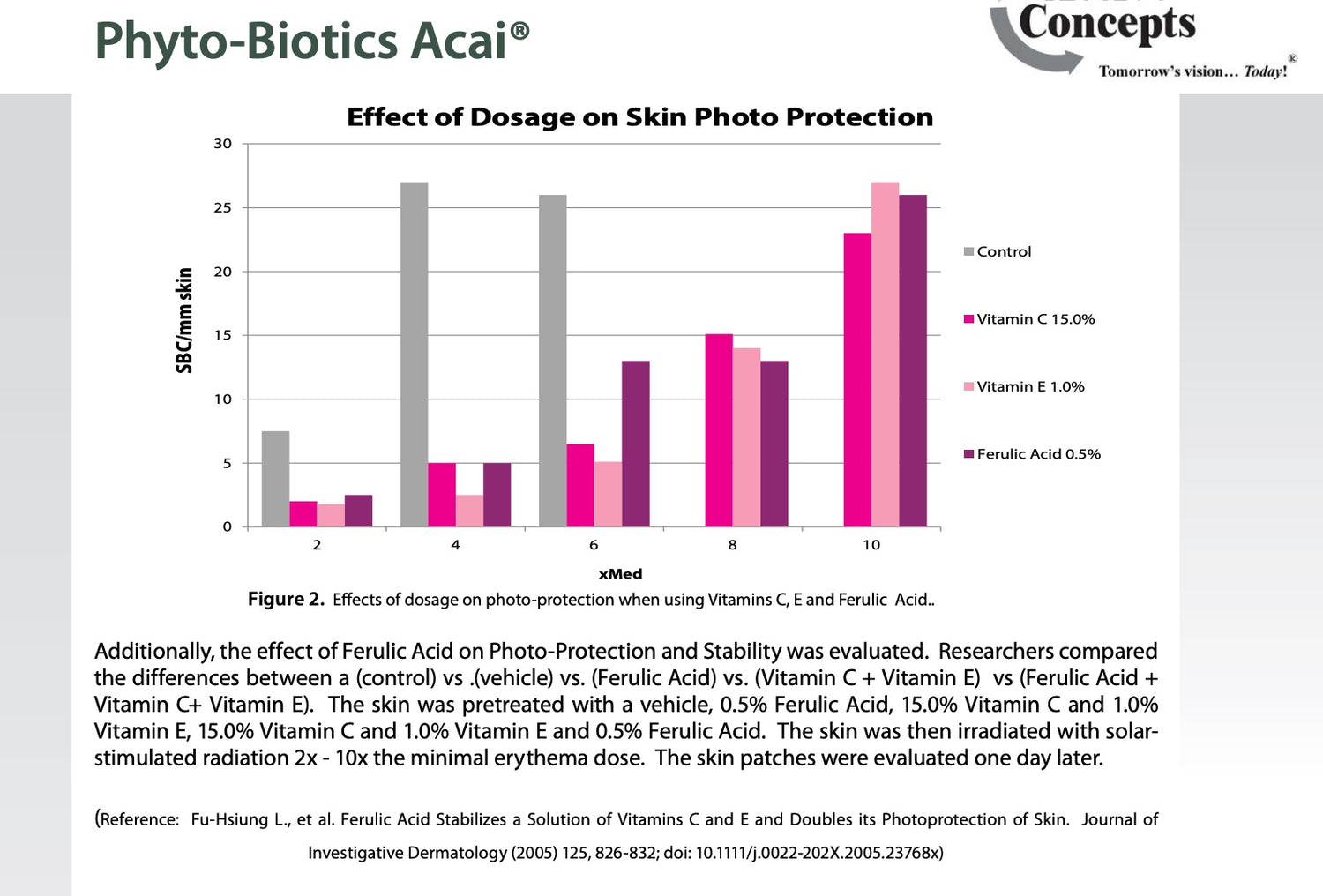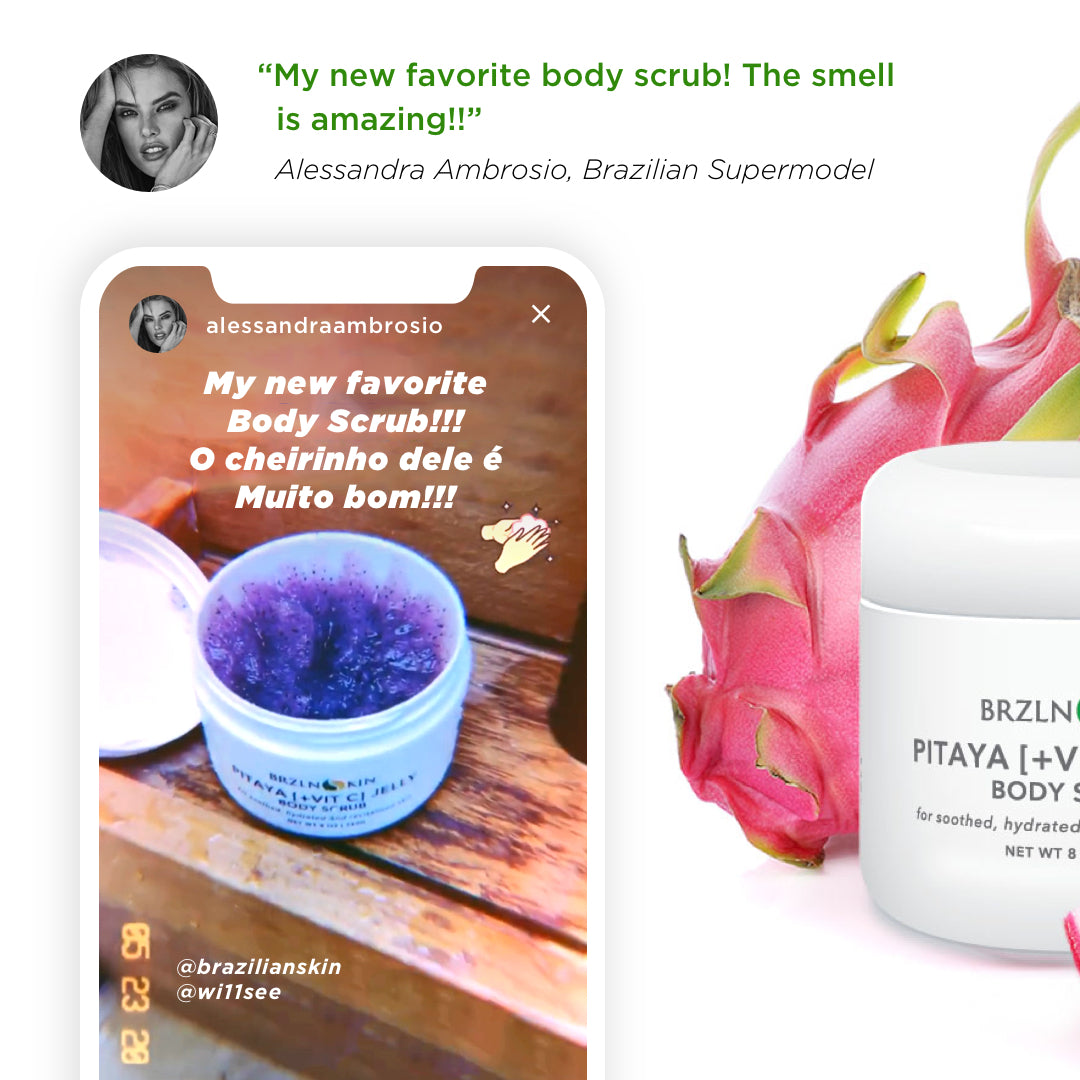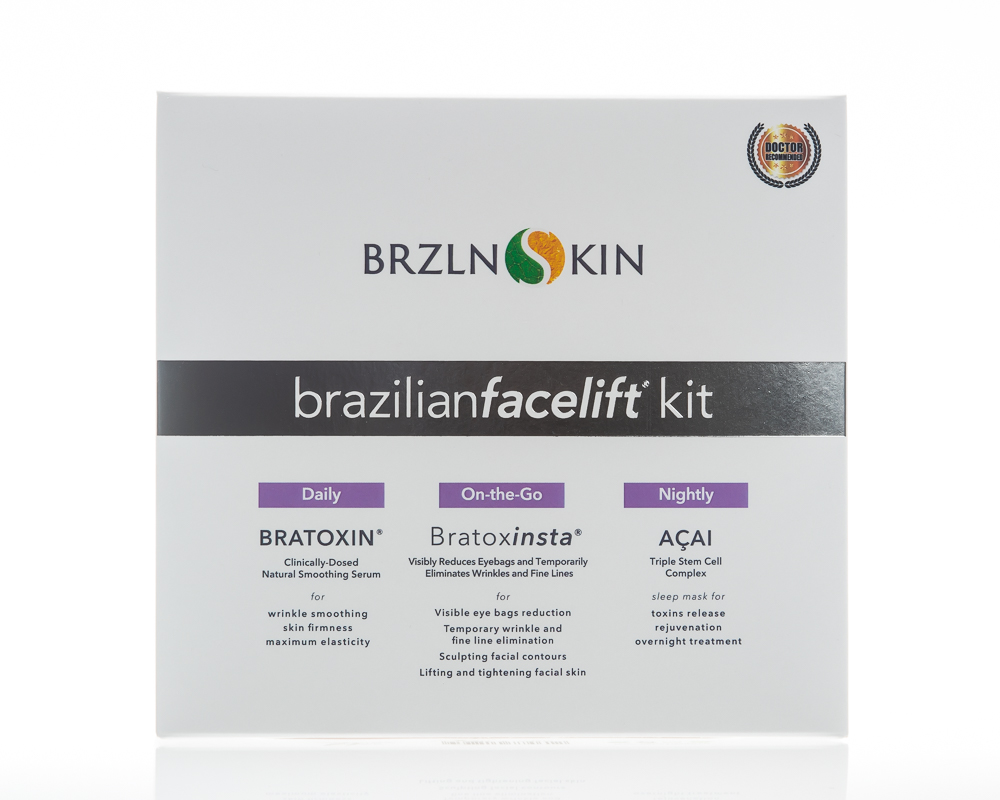Skin sensitivity is one of the most common skin care complaints in the U.S.; in fact, over half of women (and nearly just as many men) in the U.S. report having sensitive skin, and those percentages can be even higher elsewhere in the world. So if the majority of us struggle with skin sensitivities, doesn’t that mean that sensitive skin is, well, normal?
That depends on what you mean by “sensitive skin.” Sensitive skin is a symptom of another condition, not a condition in of itself. There are a number of skin conditions that could lead to irritated skin that is intolerant to many cosmetic and skincare products, but if those conditions aren’t the cause of your sensitive skin, the problem may not be your skin. The problem might be what you put on your skin.
What Sensitive Skin Is (And What It Isn’t)
When looking for sensitive skin, dermatologists try to find signs such as skin bumps, pustules, erosion, and a tendency for sudden flushing. These signs are typically associated with skin conditions, many of which are chronic and prone to recurrence. In this case, your dermatologist can recommend the best ways of managing the particular condition responsible for your skin sensitivity.
In many cases, those with self-reported skin sensitivity have no visible symptoms, but they experience prickling, burning, or tightness after using certain skin products. Typically, this reaction has little to do with the type of skin you have, and much more to do with what’s in the product. Even the healthiest skin can react poorly to irritating ingredients and added fragrances—and many of us don’t have perfectly healthy skin to begin with! Skin doesn’t build up endurance to prolonged exposure to irritants either. Instead, it gets weaker and more susceptible to conditions that would not have bothered your skin before, such as heat or the fabric of your favorite hoodie.
Your skin isn’t naturally sensitive; it’s normal. Bad skin care products and cosmetics are making it sensitive.

Causes of Sensitive Skin
The best way to determine if you have a skin condition that should be treated or if one of your products is causing skin sensitivity is to take a break from putting anything on your skin and going to speak with a dermatologist. In the meantime, you can research skin problems and rule out possible causes yourself.
Sensitive skin might be the result of any of the following conditions:
Dry Skin
When your skin loses too much water and natural oil, it becomes dry. You may notice flaking, peeling, roughness, or persistent redness. Excessively dry skin may even crack and bleed (ouch!). Dry skin weakens your skin barrier, exposing nerve endings that are normally protected from environmental agitation.
Luckily, dry skin is easy to treat. All you need to do is return moisture to your skin, which means drinking enough water throughout the day and applying a moisturizing cream or ointment to the affected areas at least two times a day. If you frequently struggle with dry skin on your face, you can tailor your skin care routine to focusing on replenishing moisture. Consider fragrance-free moisturizers, lotion cleansers, and an overnight mask. A good way to regain and lock in moisture overnight is with the Acai Triple Stem Cell Complex Sleep Mask. This mask applies like a typical moisturizer, but creates a light, breathable film over the surface of your skin to ensure your skin has enough time to absorb the active ingredients. You won’t have to worry anymore about rubbing all of your expensive lotion off onto your pillow while you sleep!
Eczema (Atopic Dermatitis)
Eczema is a chronic skin condition that flares up periodically, creating dry, itchy rashes typically in the bends of the knees and elbows, on the upper chest and neck, sometimes on the face (especially for young children), as well as the feet and hands; although the rashes can appear anywhere. The affected skin may appear thick and scaly or as small bumps. Sometimes the itching associated with eczema can become quite severe, especially at night, which can disrupt sleep and general quality of life. Although for many people eczema flare-ups can clear on their own and not appear for several years at a time (or at all), it’s important to note that dermatologists have found that eczema tends to worsen during flare-ups without proper treatment.

Eczema flare-ups can become so severe that the itchiness disrupts sleep.
Healthy skin protects against environmental irritants and stays hydrated easily, while eczema-inflicted skin is more likely to be affected by allergens, environmental factors such as sun-exposure and humidity, and harsh products. Since eczema is the result of a genetic variation having to do with the body’s immune response, those who still experience eczema flare ups into adulthood will always have sensitive skin. The best method for treating eczema is to prevent flare ups from occurring in the first place. Moisturize regularly, use gentle fragrance-free detergents and soaps, take shorter showers and baths at a cooler temperature, and avoid known triggers. Eczema has been linked stress, so managing your mental health can be just as important in preventing flare-ups as managing your physical health! If your flare up persists despite home remedies or is severe enough to disrupt your daily life, see a dermatologist for a prescription treatment.
Rosacea
Rosacea causes extreme skin sensitivity and affects primarily the face, but can also spread to the neck, upper back, and décolletage. Signs of rosacea include easily flushing or blushing, sunburn-like redness, small bumps and pimples, and visible red blood vessels. Those with rosacea may experience immediate burning or stinging after applying skin products.
Like eczema, rosacea is a skin disease prone to flare-ups and remissions. Prescription creams from your dermatologist will be best for long-term management of rosacea, but you can also help prevent recurrences by avoiding certain triggers. The most common triggers include sun-exposure, hot or cold weather, stress, alcohol consumption, and certain facial products and cosmetics. There are many reported triggers of rosacea, though, so only you can determine which triggers affect your skin.
Allergic Reactions
Allergens can be responsible for hives and allergic contact dermatitis. Hives are one of your immune system’s responses after your body, either through ingestion or contact, encounters an allergen. While hives can be unsightly, itchy, and sometimes painful, they aren’t usually a cause for concern on their own. Once you are no longer exposed to the allergen, hives will typically clear up after anywhere between half an hour and a full day. However, if in addition to hives you experience swelling of the tongue or throat, difficulty breathing, dizziness, or vomiting, you could be experiencing anaphylaxis, so seek emergency medical help immediately.
Allergic contact dermatitis is another type of immune response triggered by the skin’s direct contact with an allergen. In this case, the allergen causes damage to the protective surface of the skin, leaving behind blistered areas that may ooze, dry and scaly patches, itchy red rashes, and/or skin that feels like it is burning without any visible rash or blister. Usually, allergic contact dermatitis is not serious unless you experience an infection afterward, and it will go away with over-the-counter antihistamines and avoidance of the triggering allergen. Some of the most common allergens that cause contact dermatitis include jewelry made from nickel or gold, latex, some additives in soaps and lotions, fragrances, and poison ivy or poison oak. To correctly identify the triggering allergen, you may have to have a dermatologist perform a patch test, since sometimes your skin may only start to react as long as a week after contact with the allergen. Taking oral antihistamines, applying topical antihistamine creams, and coating the interiors of your gold and nickel jewelry with clear nail polish are ways you can prevent allergic contact dermatitis.
There are of course many other conditions that may cause frequent or prolonged skin sensitivity; the above list is just a few of the most commonly experienced skin conditions. If you suspect you have a chronic skin problem or you have any lingering concerns about the health of your skin, you should seek guidance from a dermatologist.
When Skin Sensitivity Isn’t a Symptom
As we already discussed, sensitive skin is not a condition on its own. Absent a diagnosable skin disease as an underlying cause, your skin is probably sensitive from being mistreated. Don’t blame yourself, though! With so much misinformation surrounding skin care products and cosmetics, all of us have followed bad skin care advice at some point, and what works for your friend’s skin may not work for yours.
Prolonged mistreatment of your skin can weaken its protective barrier, causing you pain, redness, dryness, and rashes. You can also develop an allergy to an ingredient that never bothered you before because you are overusing it. Even more troubling, some skin care ingredients may neutralize each other, interact poorly, or only work when applied in a certain order. Confused yet?
Sensitive Skin Treatments
So while you may not have “problem skin” per se, you may still be having problems with skin sensitivity. Once you have ruled out a specific skin condition, it’s time to take a closer look at your usual skin care routine. There’s a good chance that you might only need to make small changes to your routine to treat your sensitive skin.
Below are a few ways you can make a big difference for the health and comfort of your skin:
Say No to Foam
As fun and satisfying as they can be, foaming cleansers are actually a very common cause of dry skin. Typically, the more foam a cleanser creates, the more it strips your skin of important oils and hydration. As we already mentioned, dry skin exposes your nerve endings to the environment, which is what causes the stinging sensation you may feel when applying other topicals to your skin. You’re also undoing all the hard work of your moisturizer once you wash your face with a foaming cleanser. Instead of counteracting your moisturizer, find a non-foaming cleanser that works with your moisturizer to keep your skin barrier healthy and hydrated.
Wash Your Face Less Often
Some of us are still stuck in the habits of our teenage years, when our skin was oily and acne-prone, and it was essential to wash our face twice a day (at least). As we age, however, our skin changes, and our routines and habits should too! Dry, easily irritated skin can be the result of overwashing. Try washing your face only in the evenings to remove makeup and pollutants to see if your skin improves and becomes hardier. A splash of cool water on your face may be all you need to cleanse your skin in the mornings.
Focus On Repairing Your Skin
With any skin problem, you should be focused on repairing your skin rather than stripping it. Exfoliation can be a great means of clearing pores and promoting skin cell regeneration, but exfoliation is often misused as a means of scrubbing away dry, flaky skin and acne, which only damages and inflames the skin further. Over-exfoliation can also turn healthy skin into sensitive skin by removing too much of your natural skin barrier. Most people will benefit the most from exfoliating just once a week.

Too much exfoliation might be damaging your skin.
Start restoring your skin instead with products including ingredients that help your skin regenerate its essential components, such as peptides and plant stem cells.
Simplify Your Routine
As multi-step and multi-product routines take over the skin care world, it’s becoming easier and easier to accidentally subject your skin to too much of the same ingredient, or to ingredients that interact poorly together. For example, many anti-aging products contain retinol (Vitamin A), and retinol has been shown to be effective in concentrations as low as 0.01%. Using a retinol serum followed by a retinol eye cream followed by a retinol overnight mask is likely overkill and can make your skin sensitive or worsen already sensitive skin. Meanwhile, a common ingredient like Vitamin C can completely negate the efficacy of retinol. If your skin feels greasy, tacky, or sticky after your product regimen, it’s likely a sign that you’re using too many products or the wrong combination of products. Tailor your routine to something much simpler so that you can easily control the amount and interaction of key ingredients. Plus, if you do find your products aren’t playing well together, it will be much faster and easier to determine which one needs to go.
Your safest bet when it comes to products that work well together? Select skin care products from the same line. You don’t have to make use of every product in a particular collection, but you can ensure that the products you do select are formulated to be comprehensive and have cumulative benefits.
For example, the Brazilianfacelift collection is a 3-step line that is designed to work cooperatively to combat signs of aging, but each of its three products address a unique concern within the scope of anti-aging. Bratoxin is the most comprehensive of the three, delivering skin health benefits such as decreasing the depth of fine lines and wrinkles, moisturization, smoothing and tightening the skin, and protecting against oxidative stress, among other benefits. Bratoxinsta is a more concentrated and targeted serum that tightens the skin and reduces the appearance of fine lines in under 60 seconds; it is intended to work independently or as a supplement to Bratoxin. Finally, the Açai Triple Stem Cell Complex is a sleep mask that hydrates and stimulates the skin to replenish itself, in addition to fighting inflammation. While many of their benefits overlap, each of these three products contributes something new to your skin, allowing you to tailor your routine without fear of overdoing one active ingredient or of your products counteracting one another.
Find a skin care collection formulated to create a comprehensive, cooperative regimen.
Go Fragrance-Free
Dermatologists identify fragrances as the leading cause of skin sensitivities and other skin irritations. The FDA doesn’t require companies to list the components of their fragrances, so while you might only see “fragrance” on an ingredient list, that one ingredient might be composed of hundreds of different chemicals. Keep an eye out for “masking agents” in skin care products as well; a masking agent disguises the natural smell of a product, and products can then claim “no added fragrances,” while still exposing you to the same skin irritants.
Avoid These Common Ingredients
In addition to fragrances, avoid these common cosmetic ingredients:
- Sodium lauryl sulfate: Frequently found in face washes, shampoo, body wash, and toothpaste, sodium lauryl sulfate is responsible for the foaming action of these products. Aside from causing skin dryness, it has also been shown to contribute to general skin irritation, canker sores, and cystic acne.
- Butylated hydroxyanisole (BHA): BHA is used in exfoliants, despite the National Toxicology Program classifying it as “reasonably anticipated to be a human carcinogen.”
- Parabens: You’ve probably heard that parabens are bad for you, but you may not know just how bad. The FDA recognizes several studies that link parabens to breast cancer, skin cancer, and reproductive disorders; however, the FDA hasn’t officially deemed it harmful. Considering how ubiquitous parabens are in makeup, moisturizers, lubricant, and other toiletries, it’s probably best to find paraben-free products, just in case.
Suitable for All Skin Types
Searching for products that are “suitable for all skin types” is another good way to discover a gentle skin care routine. It’s difficult to determine what “type” of skin you have, and since your skin will change with age, weather, and environment, a skin type label is often too restrictive. Instead, find dermatologist recommended skin care products that are suitable for all skin types, including sensitive skin.
For more assurance, you can research whether or not a brand has done its due diligence when making the “suitable for all skin types” claim. BRZLNSKIN sent the Brazilianfacelift collection to a third-party lab to thoroughly investigate its suitability for different skin types.

A portion of the independent clinical study performed for each Brazilianfacelift product that determined the regimen was non-irritating to all 55 volunteers.
After a clinical study with 55 volunteers aged 18 to 64, the lab determined that each of the three Brazilianfacelift products was non-irritating to all participants upon initial application and after 48 hours; they did not cause any adverse skin reactions. Meanwhile, a 2.0% concentration of sodium lauryl sulfate, the ingredient we mentioned above that is present in a vast majority of skin care products, created a skin reaction in about 25% of the participants, meaning the Brazilianfacelift regimen is significantly gentler than your average face wash!
Natural Is Great, Until It Isn’t
We love natural ingredients, and there are so many remedies still waiting to be found in nature. Unfortunately, not all natural ingredients are created equal. Make sure the natural ingredients a product is touting are ones that have been clinically tested and dermatologist approved. There’s a big difference between a natural ingredient like camu camu and a natural ingredient like an essential oil—a frequent trigger of allergic contact dermatitis.

No matter how natural, some things aren’t good for your skin; a prime example is poison ivy!
Throw Out Old Products
Skin care products are like food for your skin. You wouldn’t try to eat something that expired three months ago, would you? Then why use expired skin care products? Make sure you keep all of your remedies up to date and fresh to avoid potential infections or other skin reactions.
Don’t Be a Hero
If your skin is becoming sensitive and irritated in response to a product, don’t try to fix it with another product. Instead, stop using the aggravating product and allow your skin to heal on its own. Trying to guess at a quick fix may end up worsening your skin sensitivity. If the irritation persists, speak to a dermatologist to find a safe remedy.
Is Having Sensitive Skin Really a Myth?
Yes and no. On the one hand, skin sensitivity is a very real skin problem, but on the other hand, many of us probably don’t have “naturally sensitive skin” like some skin care brands have tried to convince us. Without an underlying condition, the cause of sensitive skin is bad product ingredients and formulations, and our skin shouldn’t be the one to blame! Instead of being frustrated with your own skin, start being frustrated with bad products. Find new, dermatologist recommended skin care products that are safe for normal skin and sensitive skin. Don’t settle for cheaply made products that try to make you feel responsible for a normal skin response to their damaging ingredients.





